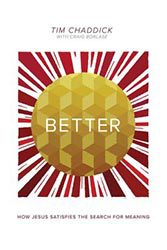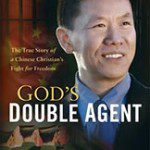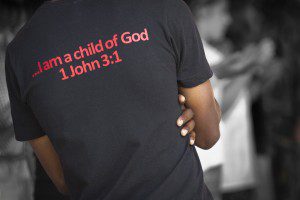 It’s this thing about favorite foods. If I say I love something, someone else will hate it so much they’d rather eat a bug (quite tasty in many cultures and high in protein). If I hate it, someone will think me a neo-Nazi for trashing their food. I’m the same way; people who eat liver or mushrooms (For crying out loud, people, you’re eating fungus!!!) need to seek serious help…and soon.
It’s this thing about favorite foods. If I say I love something, someone else will hate it so much they’d rather eat a bug (quite tasty in many cultures and high in protein). If I hate it, someone will think me a neo-Nazi for trashing their food. I’m the same way; people who eat liver or mushrooms (For crying out loud, people, you’re eating fungus!!!) need to seek serious help…and soon.
Unwittingly, we read the Bible much the same way; inside the canonical sixty-six books, we have our favorites. At different times, I’ve not been really excited about Acts or even the Psalms. (I know – I’m a Baptist neo-Nazi.) Nobody says Ecclesiastes, quite possibly authored by King Solomon, is their favorite. It’s the liver of the canon. It has to be good for us because it’s in there but almost nobody is too eager for seconds.
Written by Solomon or not, Ecclesiastes describes someone who believes in God while living a lot of years as if he did not. The writer chases down and gorges himself with all the world’s goodies (wine, sex, power, wealth) only to find it all empty – “vanity of vanities.” Meaninglessness. But there’s more. As the old dog looks back over his shoulder to wasted energies and years, he gleans some keen wisdom that lures people to this gray corner of the Scriptures such as Ecclesiastes 3:1-8. This passage, recorded by the Byrds in the Sixties, became a life statement for many in the Woodstock era, with many not realizing it was in the Bible. I recently preached through this book and, therefore was glad to see someone dig deep into it like Tim Chaddick has done in Better.
Not much has changed. We keep looking to the same things for fulfillment and happiness. Things accomplished or achieved ring hollow. Dreams die. Our own mess-ups blow us up without our learning much from the experience. Tim takes us through the paces of Ecclesiastes in three sections – Aspirations, Assets and Attitudes. Under “Aspirations”, he heads each chapter with the phrase “…if I only…” If I only could be this or have that or do this, I would be happy. Regarding our past, “…if I only…” stands as a signpost to irreversible regret. I remember talking with a young man who tested to join the police force. “If I don’t get this job, I can’t imagine anything making me happy in life.” His three year old son played at our feet. Knowing more, having more and pleasuring more leave us empty. As I read, I remembered my musician days playing in places where I watched people trying to convince themselves they were having a good time. The boredom and emptiness haunted their faces.
The “Assets” include money, time, community and power – things we all handle that can bring both good and bad. They also flag what our real values and priorities are regardless of our protest to the contrary. In the “Attitudes” section, Tim goes through a laundry list of religiosity, envy, discontent and worry like a doctor on the hunt through a maze of symptoms. These things tell us something. What is it? If we don’t listen, they will yell louder.
A further chapter deals with death, the final reality that puts the cap on everything we know in space and time. And here I must tip Tim’s hand just a little. All the way through Better, Tim recasts all these longings and frustrations into a framework bigger than space and time and focused on Jesus Christ. But a caution comes into play here. Jesus, for Tim and anyone else serious about Him, can never be a religious band-aid or mantra we mouth or magic genie we have at our disposal to fill us with the junk that can never satisfy. Tim, throughout the book, holds up the risk and intimacy of really knowing Jesus Christ who loves us too much to leave us as we are. And in finding Him, we find satisfactions that space and time can’t hold.
Tim also sprinkles through Better the recurring theme of doubt with the idea that doubt is not innately destructive to faith but indeed paves the way to deeper faith. Transitioning through life stages, struggles and suffering always induces faith struggles whether we admit that or not. The faith of a nine year old won’t cut it in the life of a twenty something. Faith must grow. It’s like muscle; faith grows by working against resistance. To never question means we never think seriously enough about our faith to find out how strong it really is. A couple other good titles on this would include Doubting: Growing Through the Uncertainties of Faith by Alister McGrath and Ravi Zacharias and God In the Dark: Assurance of Faith Beyond a Doubt by Os Guinness.
Instead of rehashing the “vanities,” Better points in a winsome style that the book was always meant to have a higher target – the fullness of Jesus Christ, loose and fiery in the fabric of the human heart. Tim Chaddick may never make us like liver but he shows in Better that Ecclesiastes deserves more than another taste.













